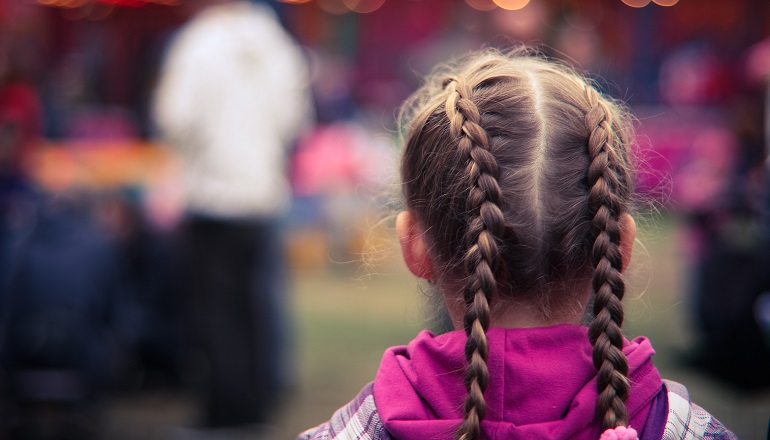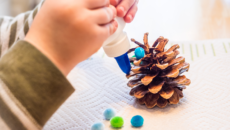Annie had been waiting forever for this day to come, and finally it was time for “her party.” Everyone was coming: Grandma, Grandpa, Nana, Poppy, the cousins, and Uncle Stan. Mom was busy working in the kitchen, and Dad was bringing up the party chairs from the basement. Everything was buzzing around her and inside her. There were new smells, new sights, and changes in the routine. Inside, there were changes, too. Annie could feel something in her tummy and in her throat. She could feel tingling all through her body. She was very excited but she was also a little worried and scared, although she was not sure why.
When her mom asked her to help pick up her toys, Annie began to get upset, feeling like nothing was working right. She could not find the words to tell Mom, so she started to act silly and got a little mad. All of a sudden, everything felt like it was bursting open inside! Mommy held her on her lap, and she felt safe and good again. The tingling was gone, and soon the party would start.
Emotion Overload
Whether it is Christmas, Hanukah, Thanksgiving, or your child’s birthday, a big event often means a big meltdown for the preschool crowd. The key to understanding how and why this happens at this age lies in understanding emotional regulation.
Emotional regulation begins in infancy. Every time a parent soothes a distressed infant, the child adds to her capacity to regulate her emotions. Children also learn emotional regulation through games like “Peek-a-Boo”—these games begin by building anticipation and anxiety, which then dissolve into giggles and connection. The emotions go up, and then come down, over and over again.
While the foundation of emotional regulation is laid during infancy, the ability to regulate emotions continues to develop throughout childhood, particularly in the toddler and preschool years. The occurrence of tantrums is at its peak during these years, and tantrums help the child practice and establish emotional regulation. Having Mom’s or Dad’s support through the tantrum, by setting necessary limits, while providing love and connection, furthers the internalization of emotional regulation.
Children who have had difficult beginnings might have missed some of the early experiences that support the development of emotional regulation. We may need to support them by providing the kind of comfort we would give to an infant, with holding, rocking, back rubbing, and soothing words. This is not the time for ignoring a child or placing him alone in his room for time-out. The child needs to take his parents for granted and know they will be there for him, emotionally and physically.
The holidays are a time of intense emotions, fewer available caregivers, bombardment by the media, and endless waits. Even adults get stressed, and our children experience the same kinds of stress. Being aware of underlying issues will help us understand and respond to the normal ups and downs of childhood.



